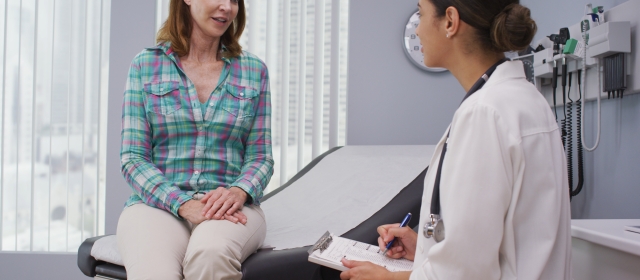
All Sexual Health Topics
Upcoming Events

- Sexual Health Topics: Men’s Sexual Health, Women’s Sexual Health, Mental Health & Psychology
Engaging in BDSM (Bondage and Discipline, Dominance and Submission, Sadism and Masochism) and kink (non-normative sexual behavior) can be a fulfilling and intimate experience for consenting adults. However, due to the complexity and potential psychological impact of these activities, seeking the assistance of a sex therapist can provide valuable guidance and support for getting started. The following is an explanation of the benefits of involving a sex therapist in your BDSM and kink exploration journey, as well as an outline of steps to take to ensure a safe and consensual experience.

- Sexual Health Topics: Men’s Sexual Health, Mental Health & Psychology
“Toxic masculinity” is a term that has gained prominence in recent years as society engages in discussions around gender norms and their consequences. Rooted in traditional stereotypes of masculinity, toxic masculinity refers to a set of cultural norms and expectations that prescribe a narrow and harmful definition of manhood. Although further research is necessary to flesh out this concept and its ramifications, this article aims to delve into toxic masculinity and explore its potential impact on sexual functioning.
There have been many developments over the last decade in care for persons with gender inconcordance. In this video from the International Society for Sexual Medicine, experts in the field of sexual health describe some of these developments.
Men dealing with erectile dysfunction may wonder about investigative therapies. In this video from the ISSM, experts in the field discuss the controversial topic of using shockwave therapy to treat ED. This video answers questions: What is shockwave therapy, and how does it work? Do you recommend shockwave therapy for your patients? Why or why not? Is shockwave therapy effective for treating erectile dysfunction? Take a look at this video to hear the answers to these questions, among many more.

- Sexual Health Topics: Women’s Sexual Health, Cancer & Sexual Health (Oncosexology), Sexually Transmitted Infections/Diseases (STIs/STDs)
Cervical Cancer Awareness Month, observed annually in January, serves as a critical reminder for women to prioritize their well-being by understanding and taking care of their cervical health. Cervical health is integral to overall reproductive and sexual health, and awareness plays a pivotal role in prevention, early detection, and timely intervention. This article will explore key aspects of cervical health, shedding light on what every woman should know to make informed decisions about their well-being.

- Sexual Health Topics: Men’s Sexual Health, Women’s Sexual Health
Consent is a fundamental aspect of any healthy and respectful sexual relationship. It is essential for everyone involved to willingly agree to engage in any sexual activity, ensuring that all parties feel comfortable, safe, and respected. The following will delve into what consent means and why it is so important for all sexual encounters.
Low sexual desire in women can be the result of many factors. In this video from the International Society for Sexual Medicine, experts in the field of sexual health explain what message they wish to share with women who suffer with low sexual desire.

- Sexual Health Topics: Men’s Sexual Health, Women’s Sexual Health
In the ever-evolving landscape of technology, its impact on various aspects of human life is undeniable, and the realm of sexuality is no exception. As we navigate the 21st century, innovations like virtual reality (VR), sex robots, and smart sex toys are reshaping/will reshape the way individuals experience and express their sexuality. It is important to delve into the implications of these technologies, exploring their potential impacts on intimacy, relationships, and societal norms.

- Sexual Health Topics: Men’s Sexual Health, Women’s Sexual Health
Human sexuality is a multifaceted and dynamic aspect of life that encompasses a wide range of experiences. While penetration is often portrayed as the focal point of sexual activity, there are numerous alternative activities that can contribute to a fulfilling and satisfying intimate relationship.
While female sexual health still lags behind its male counterpart, it's promising that it's gaining mainstream attention. In the latest #AskISSM video, experts talk about the new and exciting things in female sexual medicine.

- Sexual Health Topics: Men’s Sexual Health, Women’s Sexual Health
Maintaining a healthy and satisfying sexual relationship is important for many couples. However, as life gets busier and a person’s responsibilities increase, some couples may find themselves questioning whether scheduling sexual activity is a practical solution. The following article explores the pros and cons of scheduling sexual activity with your partner, shedding light on different aspects of this approach.

- Sexual Health Topics: Men’s Sexual Health, Women’s Sexual Health, Sexually Transmitted Infections/Diseases (STIs/STDs)
Acquired immunodeficiency syndrome (AIDS) and human immunodeficiency virus (HIV) are often used interchangeably, but they represent distinct stages of the same disease progression. It is important to understand the differences between HIV and AIDS to better grasp the complexity of the infection, its transmission, and its impact on global health.

